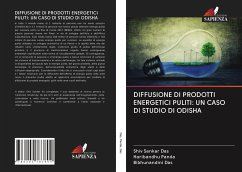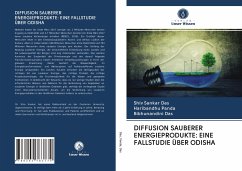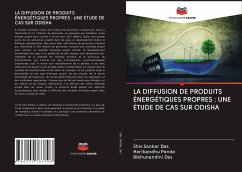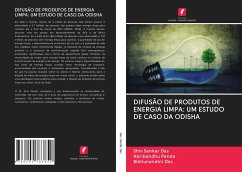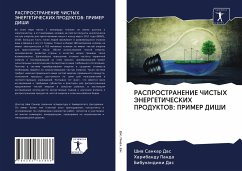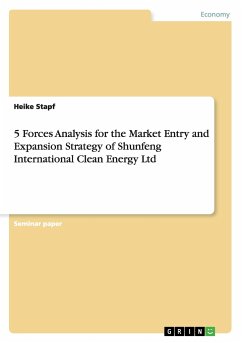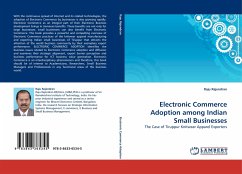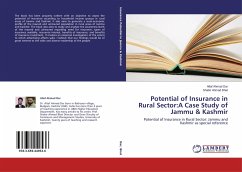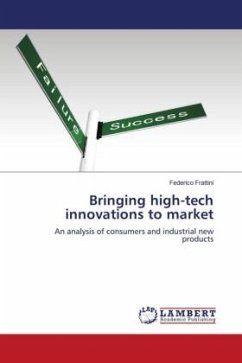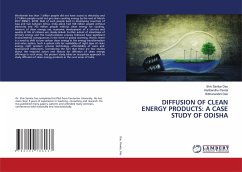
DIFFUSION OF CLEAN ENERGY PRODUCTS: A CASE STUDY OF ODISHA
Versandkostenfrei!
Versandfertig in 1-2 Wochen
50,99 €
inkl. MwSt.

PAYBACK Punkte
25 °P sammeln!
Worldwide less than 1 billion people did not have access to electricity and 2.7 billion people could not get clean cooking energy by the end of March 2017 (REN21, 2019). Bulk of such people lived in developing countries of Asia and Sub Saharan Africa. India alone had 168 million people without electricity and 703 million people without clean energy for cooking. Amount of clean energy use, economic development of a country and quality of life of citizens are closely linked. Further extent of cleanliness of primary energy and the transformation process followed have significant environmental con...
Worldwide less than 1 billion people did not have access to electricity and 2.7 billion people could not get clean cooking energy by the end of March 2017 (REN21, 2019). Bulk of such people lived in developing countries of Asia and Sub Saharan Africa. India alone had 168 million people without electricity and 703 million people without clean energy for cooking. Amount of clean energy use, economic development of a country and quality of life of citizens are closely linked. Further extent of cleanliness of primary energy and the transformation process followed have significant environmental consequences in the form of global warming. Hence, there is a need to shift to low carbon clean energy in the energy transformation and value system. Such a system calls for availability of right type of clean energy, right product, process technology, affordability of users and appropriate institutions. Considering the fact that there are few studies about the required actors and factors for diffusion of clean energy offerings in rural areas, the present study takes an ecosystem approach to study diffusion of clean energy products in the rural areas of India.



